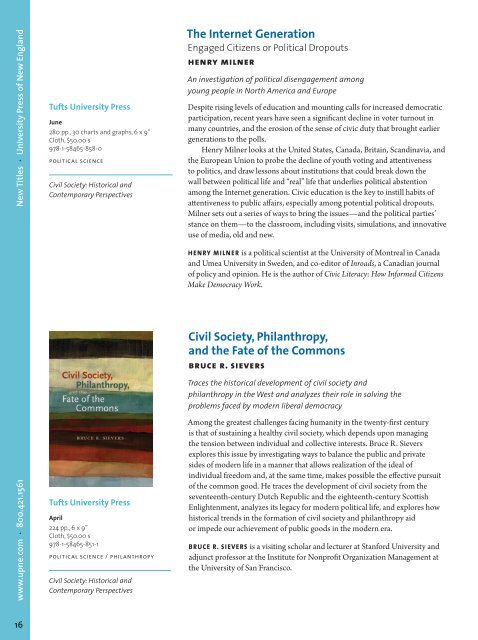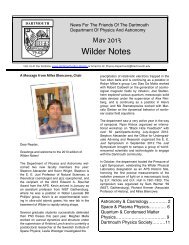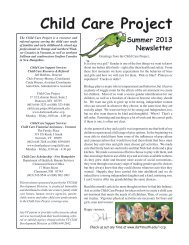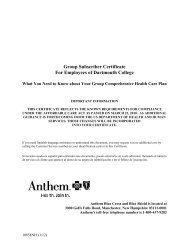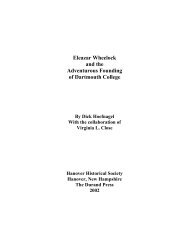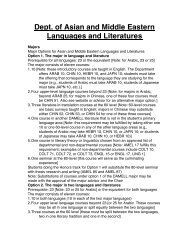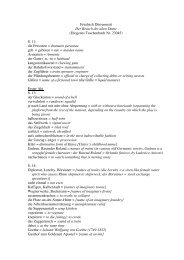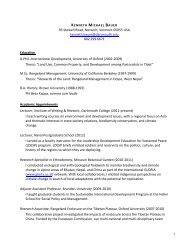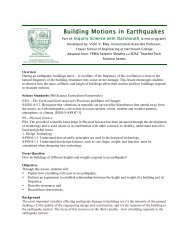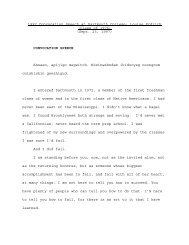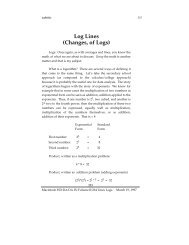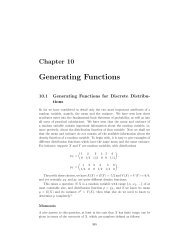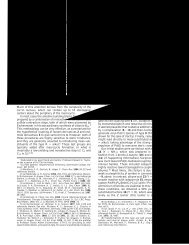University Press of New England - Dartmouth College
University Press of New England - Dartmouth College
University Press of New England - Dartmouth College
Create successful ePaper yourself
Turn your PDF publications into a flip-book with our unique Google optimized e-Paper software.
www.upne.com · 800.421.1561 <strong>New</strong> Titles · <strong>University</strong> <strong>Press</strong> <strong>of</strong> <strong>New</strong> <strong>England</strong><br />
16<br />
Tufts <strong>University</strong> <strong>Press</strong><br />
June<br />
280 pp., 30 charts and graphs, 6 x 9"<br />
Cloth, $50.00 s<br />
978-1-58465-858-0<br />
political science<br />
Civil Society: Historical and<br />
Contemporary Perspectives<br />
Tufts <strong>University</strong> <strong>Press</strong><br />
April<br />
224 pp., 6 x 9”<br />
Cloth, $50.00 s<br />
978-1-58465-851-1<br />
political science / philanthropy<br />
Civil Society: Historical and<br />
Contemporary Perspectives<br />
The Internet Generation<br />
Engaged Citizens or Political Dropouts<br />
henry milner<br />
An investigation <strong>of</strong> political disengagement among<br />
young people in North America and Europe<br />
Despite rising levels <strong>of</strong> education and mounting calls for increased democratic<br />
participation, recent years have seen a significant decline in voter turnout in<br />
many countries, and the erosion <strong>of</strong> the sense <strong>of</strong> civic duty that brought earlier<br />
generations to the polls.<br />
Henry Milner looks at the United States, Canada, Britain, Scandinavia, and<br />
the European Union to probe the decline <strong>of</strong> youth voting and attentiveness<br />
to politics, and draw lessons about institutions that could break down the<br />
wall between political life and “real” life that underlies political abstention<br />
among the Internet generation. Civic education is the key to instill habits <strong>of</strong><br />
attentiveness to public affairs, especially among potential political dropouts.<br />
Milner sets out a series <strong>of</strong> ways to bring the issues—and the political parties’<br />
stance on them—to the classroom, including visits, simulations, and innovative<br />
use <strong>of</strong> media, old and new.<br />
henry milner is a political scientist at the <strong>University</strong> <strong>of</strong> Montreal in Canada<br />
and Umea <strong>University</strong> in Sweden, and co-editor <strong>of</strong> Inroads, a Canadian journal<br />
<strong>of</strong> policy and opinion. He is the author <strong>of</strong> Civic Literacy: How Informed Citizens<br />
Make Democracy Work.<br />
Civil Society, Philanthropy,<br />
and the Fate <strong>of</strong> the Commons<br />
bruce r. sievers<br />
Traces the historical development <strong>of</strong> civil society and<br />
philanthropy in the West and analyzes their role in solving the<br />
problems faced by modern liberal democracy<br />
Among the greatest challenges facing humanity in the twenty-first century<br />
is that <strong>of</strong> sustaining a healthy civil society, which depends upon managing<br />
the tension between individual and collective interests. Bruce R. Sievers<br />
explores this issue by investigating ways to balance the public and private<br />
sides <strong>of</strong> modern life in a manner that allows realization <strong>of</strong> the ideal <strong>of</strong><br />
individual freedom and, at the same time, makes possible the effective pursuit<br />
<strong>of</strong> the common good. He traces the development <strong>of</strong> civil society from the<br />
seventeenth-century Dutch Republic and the eighteenth-century Scottish<br />
Enlightenment, analyzes its legacy for modern political life, and explores how<br />
historical trends in the formation <strong>of</strong> civil society and philanthropy aid<br />
or impede our achievement <strong>of</strong> public goods in the modern era.<br />
bruce r. sievers is a visiting scholar and lecturer at Stanford <strong>University</strong> and<br />
adjunct pr<strong>of</strong>essor at the Institute for Nonpr<strong>of</strong>it Organization Management at<br />
the <strong>University</strong> <strong>of</strong> San Francisco.


